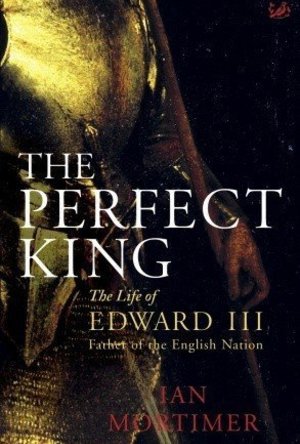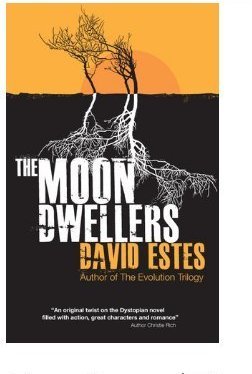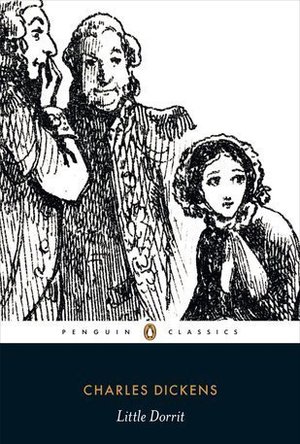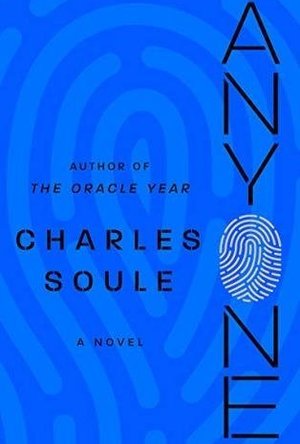
Volo's Guide to Monsters (Dungeons and Dragons 5th Edition)
Tabletop Game
Immerse yourself in monster lore in this supplement for the world’s greatest roleplaying game ...

The Perfect King: The Life of Edward III, Father of the English Nation
Book
He ordered his uncle to be beheaded; he usurped his father's throne; he taxed his people more than...

The Moon Dwellers (The Dwellers #1)
Book
In a desperate attempt to escape destruction decades earlier, humankind was forced underground, into...
Dystopia Sci-fi Action Adventure YA Young Adult

Little Dorrit
Book
A novel of serendipity, of fortunes won and lost, and of the spectre of imprisonment that hangs over...

Anyone: A Novel
Book
Charles Soule brings his signature knowledge—and wariness--of technology to his sophomore novel...

Death (The Four Horsemen #4) by T.A. Chase
Book
Death, the Pale Rider and the most feared member of the Four Horsemen, has been searching through...
MM Paranormal Romance
David McK (3692 KP) rated The Postman (1997) in Movies
Jun 21, 2022
It sunk at the box office.
This was a few years later, based on the highly-respected David Brin novel of the same name.
I'm sure he wasn't expecting this one to flop either. Set in the far-off future of 2013, following a un-named catastrophe of some sort (no, not Trump)
The problem, I feel, is simply the length at nearly 3 hours long - there's some good ideas in here, and some good scenes, and a refreshing society-is-now-getting-better-again thread, after the unnamed events that led to the dystopian future shown at the start of the movie, but I do feel that the first act (in particular), playing up the threat of the fascist army led by General Bethlehem, could have been excised somewhat.
I understand why it's there - it needs to give Costner's character something to push against - but I think the book (and from what I remember) handled that aspect better than the movie does.
So, yeah, Costner plays a drifter who - after his escape from that army - discovers an old Postman uniform, initially putting it on only to become warm and then 'delivering the mail' simply as a scam to get food and shelter. However, over the course of that movie, that scam takes on a life of its own and more and more becomes the truth, finally ending with a code in the late 2040s after his death and where - going by dress, etc, - things seem to be back to 'normal'.
Lyndsey Gollogly (2893 KP) rated One Enchanted Evening ( The Buckingham Hotel book 1) in Books
Jan 16, 2022
Book
One Enchanted Evening ( The Buckingham Hotel book 1)
By Anton DuBeke
London, 1936.
Inside the spectacular Grand Ballroom of the exclusive Buckingham Hotel the rich and powerful, politicians, film stars, even royalty, rub shoulders with Raymond de Guise and his troupe of talented dancers from all around the world, who must enchant them, captivate them, and sweep away their cares. Accustomed to waltzing with the highest of society, Raymond knows a secret from his past could threaten all he holds dear.
Nancy Nettleton, new chambermaid at the Buckingham, finds hotel life a struggle after leaving her small hometown. She dreams of joining the dancers on the ballroom floor as she watches, unseen, from behind plush curtains and hidden doorways. She soon discovers everyone at the Buckingham - guests and staff alike - has something to hide . . .
The storm clouds of war are gathering, and beneath the glitz and glamour of the ballroom lurks an irresistible world of scandal and secrets.
Let's dance . . .
Well I was not expecting that! I loved this book the only reason I put it down was to sleep! I never in a million years would have picked this book up as I’m not a huge fan of the author but it came to me through a surprise subscription and I’m so glad I decided to read it! Set in an era I adore with all the glitz and glamour as well as little dark little secrets of the characters that make them human. I really recommend this to anyone who likes 1930s drama settings.
Lyndsey Gollogly (2893 KP) rated Manumission in Books
Oct 1, 2022
Kindle
Manumission
By R.A. Hatton
⭐️⭐️⭐️⭐️
A REBELLION IGNITED BY A FORBIDDEN LOVE.
Within an old kingdom, our elven race of warriors keep humans as slaves, and we thrive.
Until the rebellion started, disturbing the peace and hurting the innocent, now I hunt them, and I will find their hidden base.
When my man servant is killed during an ambush, rage for the loss of a slave brings confusion and chaos into my otherwise commanding and structured life.
He was so much more, meant more to me than my society allows.
I have no time to grieve as a new alliance of enemies has emerged from within my city, and they have plans for me.
Forced me to take part in a traditional breeding programme, but I am nobody’s breeder and I will defy their rules.
Yet, when I meet him, the branded human scheduled for death, he awakens a desire from within that I never knew existed.
He makes me question the rules and I begin to discover the truths long buried in blood.
My name is General Truda and now I must choose between obeying the laws of my species or to free the forbidden human, who repairs my heart.
I was surprised at how much I enjoyed this book. Or had a strong story and very good character and world building. It was an easy straightforward read that kept you really interested in the outcome. I’m hoping this writer does more in the future.
Lyndsey Gollogly (2893 KP) rated Secrets, Lies & Revenge (Book 1) in Books
Jul 11, 2023
Book
Secrets,Lies &Revenge (Book 1)
By Ben Andrews
⭐️⭐️⭐️⭐️
Four women. Three murders. Infinite secrets.
After Emily Lamont and her grandmother, Cynthia, move into the affluent neighborhood of Beechwood Close — their plan is set in motion.
Ava Shaw has built up a stellar reputation, the envy of society at Beechwood. Yet her troubled past soon catches up with her when things begin to spiral out of control, threatening to finally expose the truth she spent years hiding.
Rose Walker is struggling to find peace in her home, but when she is approached by a stranger who spins stories of a group that can change her life, things finally start to look up. Until she learns of their sinister motives…
Florence Foster is transforming her life in a desperate attempt to recapture the affections of her wandering husband. But, as divorce approaches, her worst fears come to fruition.
As plans unfold and secrets are revealed, the fate of the four women hangs in the balance. But one thing is for certain, hell hath no fury like a women scorned.
I thoroughly enjoyed this. It was full of drama from the start. The characters were interesting and you felt everything with them. A book full of secrets, lies and revenge it certainly was. I was lucky enough to be gifted this along with an Arc copy of book 2 in the series and I can’t wait to see how these lives continue to unfold.

